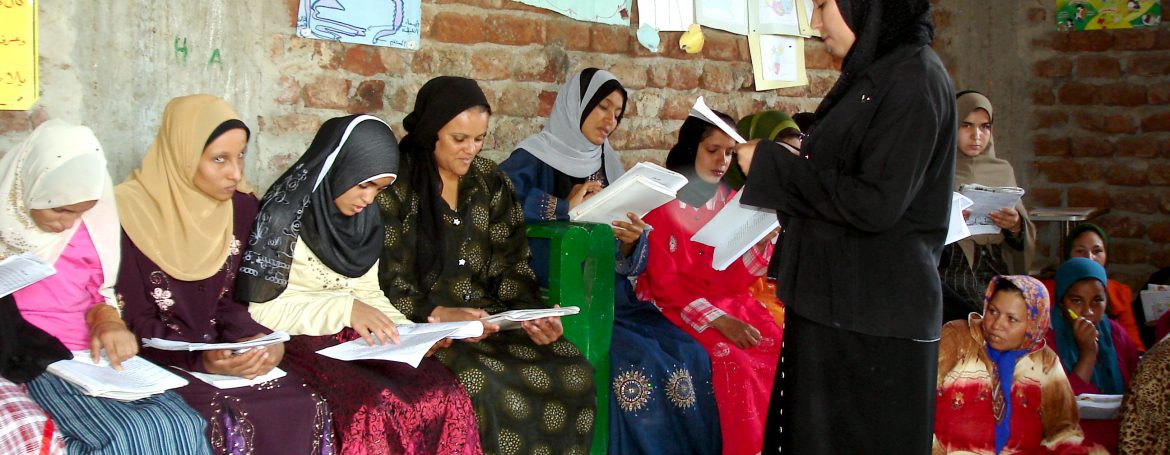Photo credit: Caritas Egypt
On Wednesday, June 6, the Ministry of Local Development announced that it will work on eliminating illiteracy in Egypt in the upcoming 3 years.
In a four-point plan, the ministry outlined the ways with which a zero percent illiteracy will be achieved by 2021.
The first principle in the plan being the activation of the University Supreme Council decision which obliges each student to teach up to 8 illiterate people. Secondly, a focus on trainer’s skills, through providing them with trainings tackling the competencies they’ll need. Thirdly, engaging the youth in the efforts undertaken by the ministry. Lastly, provide young people with necessary incentives to join the illiteracy program, by giving them rewards and bonuses.
Egypt has suffered from high illiteracy rate for years. In 2014, the Egypt’s Central Agency for Public Mobilization and Statistics (CAPMAS) reported that over a quarter of Egyptians is illiterate; 18.5% of males and 33.6% of females who cannot read or write.
While illiteracy rates in subsequent years started to decrease, they are still considered relatively high, even compared to other Arab nations, as Egypt was considered the country with the 4th highest illiteracy rate in the Arab world, according to statistics revealed by the UNESCO in September 2016.
By 2017, illiteracy rates have dropped to 20.1% of the total population, with 14.4% of males and 26% of females were considered illiterate, according to CAMPAS.
The illiteracy difference along gender lines is stark, as women constitute around 64% of total number of Egyptians above the age of 9 who cannot read or write.
In 2016, according to governmental figures, around 200,000 students dropped out of primary and middle school so they could work and support their families in meeting the basic life necessities. The Egyptian MP Magda El Baghdadi, who is a university professor sitting on the parliamentary Educational Committee, emphasized on the difficulty of eradicating illiteracy, “despite all the resources allocated for the National Literacy Program.”
Hanan Salem, a sociology professor at Ain Shams University, has told The Arab Weekly that illiteracy makes people vulnerable to “radical groups that have their own skillful way of swaying the uneducated and turning them against the whole society.”
In late 2017, the General Authority for Literacy and Adult Education has announced that it will start new programs and create efforts to eradicate illiteracy by the end 2019.






Comments (0)